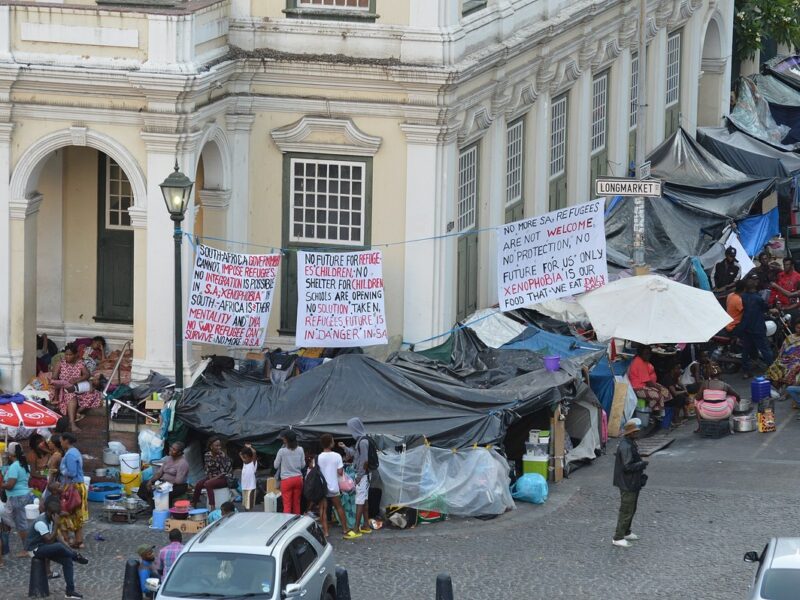Whether examining refugee situations in the 1920s or in 2022, I’ve seen how the promotion of self-reliance and livelihoods often comes at the expense of refugee well-being and protection. This knowledge demands a closer look at current trends in refugee self-reliance programming, and whose interests are being served.
AuthorEvan Easton-Calabria
Evan Easton-Calabria is a Senior Researcher at the Feinstein International Center, Tufts University; Research Associate at the Refugee Studies Centre (RSC), University of Oxford;
and a Junior Research Fellow in Social Sciences at Wadham College, Oxford. She focuses on the structure of humanitarianism and development, including anticipatory action, refugee livelihoods, self-reliance, and local governance. She is part of the Feinstein Center's Academic Alliance on Anticipatory Action (4As), seeking to advance evidence on humanitarian action to forecasted extreme weather events. She was previously Principal Investigator of the RSC research project, ‘Responses to Crisis Migration in Uganda and Ethiopia: Researching the role of local actors in secondary cities’, funded through the Cities Alliance/UNOPS, and a John Fell Fund grant, ‘Digital Livelihoods for Refugees? Exploring pathways to the new world of work in Nairobi and Tel Aviv’. She holds a Masters and Doctorate in International Development from the University of Oxford. She is co-author of 'The Global Governed? Refugees as providers of protection and assistance' (Cambridge University Press 2020). Her new book, 'Refugees, Self-Reliance, Development: A critical history', will be published with Bristol University Press in June 2022.
Her work with refugees began in Kampala, Uganda, in 2011 and has led her to research historical and contemporary refugee self-reliance assistance. Her forthcoming book traces the changes and continuities of refugee self-reliance assistance and refugees’ involvement with development since the 1920s.
In 2015 she was Principle Investigator for the National Geographic Early Career Grant project ‘Innovation and the Art of Self-Reliance: Artistic Livelihoods of Kampalan Refugees’ and in 2015-2016 for the research project ‘Researching Refugee-Run Micro-Finance’ funded by the Humanitarian Innovation Fund. While living in Uganda, she co-founded a grassroots organisation with refugees in Kampala that provides livelihoods training and support to urban refugees. Through academic research and piloting grassroots self-reliance projects with refugee communities in Kampala, her work contributes to Refugee Studies and International Development, and informs contemporary refugee policy on livelihoods, self-reliance, and self-governance.

